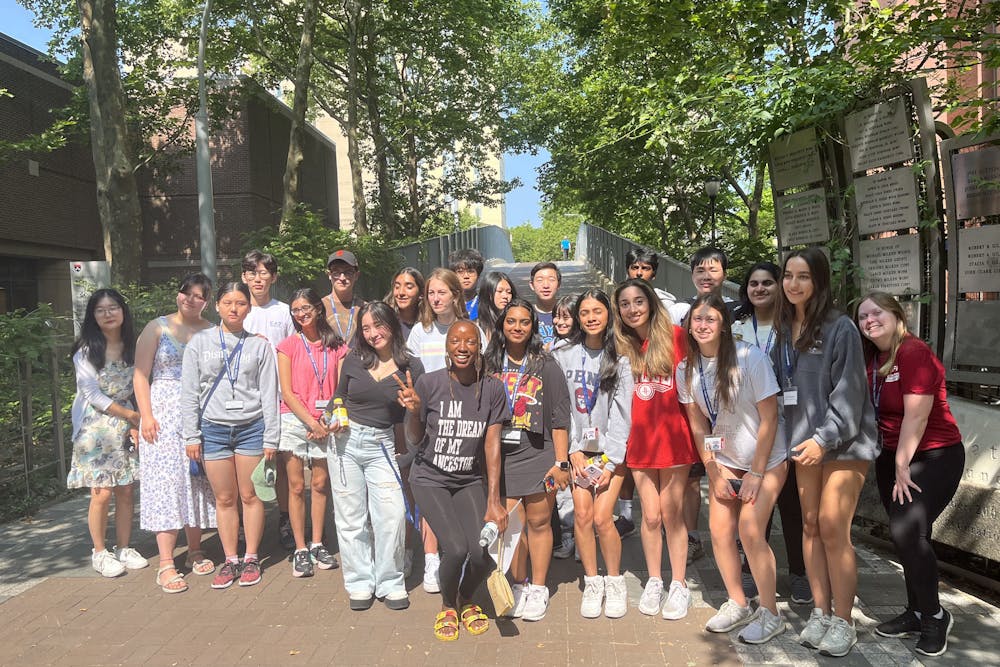The 2023 Wharton Global Youth Leadership in the Business World summer program included a new emphasis on the Penn & Slavery Project, offering students a chance to learn about the University's ties to slavery.
Leaders in the Business World is a three-week residential program that offers rising high school seniors an opportunity to learn about leadership in 21st century organizations through classes with Wharton professors and business leaders, real-time business simulations, and team-building activities. This year's cohort was the first to participate in an augmented-reality campus tour that explores Penn's historical connection to the institution of slavery, according to Penn Today.
On Juneteenth, the students took a tour offered through the Penn & Slavery Project, diverging from the standard LBW curriculum. Founded by undergraduates in 2017, the P&SP is a research program that focuses on understanding the University’s involvement in institutional slavery.
School of Social Policy & Practice professor Amy Hillier organized tours for the Wharton program, utilizing the P&SP augmented reality app. Designed by VanJessica Gladney, a former P&SP public history fellow and current Penn doctoral student in history, the app featured a team of knowledgeable guides.
Although Penn once denied any connection to slavery, the P&SP program’s research, led by history professor Kathleen Brown, disproved this claim.
By integrating historical research, primary documents, and interactive elements, the tour revealed the significant influence of slavery on Penn’s early years, with at least 75 trustees and faculty members having owned enslaved individuals. One exhibit included an art display and audio narrations about Caesar, a man who was enslaved by Penn’s first English professor Ebenezer Kinnersley in the 1700s.
“It’s like a dynamic living exhibit. Some of the history that you can’t experience directly when you’re walking around campus, you are able to access through AR,” Brown said.
Through introducing their students to the exhibit, LBW aimed to help them confront historical injustice and develop the skills to create an equitable and inclusive business world.
Overturn of affirmative action generates criticism, concern within Penn community
Penn student researchers dig into the University's unaddressed ties to the slave trade
“At a time when the willingness to confront and teach difficult histories is being challenged by those eager to whitewash the nation’s past, Penn students provide a model of careful research, clearly and sensitively presented,” Brown said.
The LBW participation is one example of how P&SP has brought the University’s history to the forefront.
“The interest in the tour and the success of our Juneteenth program convinces us that the AR app should be more widely accessible to members of the Penn community and campus visitors,” Brown said. “Incoming students, classroom instructors, and participants in various programs across the university would benefit from knowing the history of the university’s connections to slavery.”









